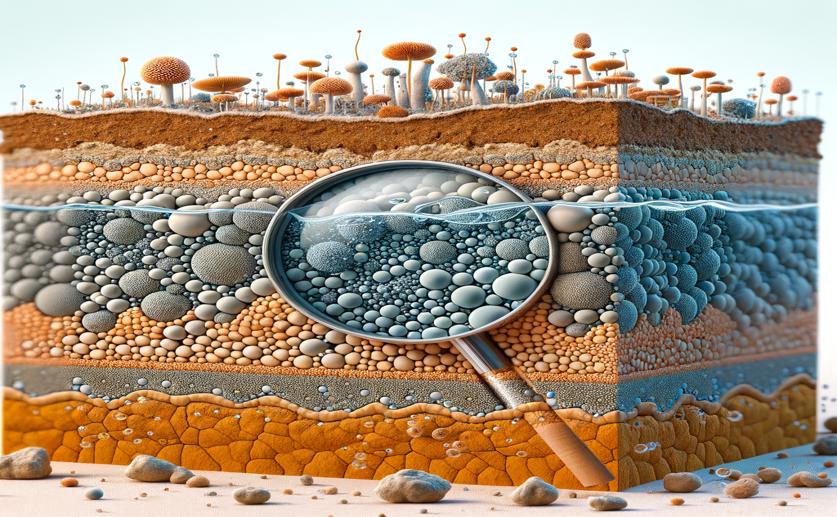
Soil Compaction Changes How Beneficial Fungi Affect Water Movement in Soil
Jenn Hoskins
30th May, 2024

Image Source: Natural Science News, 2024
Key Findings
- Researchers at the Institute of Botany of the Czech Academy of Sciences studied the impact of arbuscular mycorrhizal fungi (AMF) on soil water holding capacity (WHC)
- They found that AMF can either decrease or increase the WHC of soil, depending on the level of substrate compaction
- In compacted substrates, AMF might reduce WHC, while in less compacted substrates, AMF can enhance water retention by improving capillary movement
References
Main Study
1) Soil compaction reversed the effect of arbuscular mycorrhizal fungi on soil hydraulic properties.
Published 29th May, 2024
https://doi.org/10.1007/s00572-024-01153-9
Related Studies
2) The role of arbuscular mycorrhizal symbiosis in improving plant water status under drought.
3) Arbuscular mycorrhizal induced changes to plant growth and root system morphology in Prunus cerasifera.
Journal: Tree physiology, Issue: Vol 15, Issue 5, May 1995
4) Routes to roots: direct evidence of water transport by arbuscular mycorrhizal fungi to host plants.



 18th May, 2024 | Greg Howard
18th May, 2024 | Greg Howard